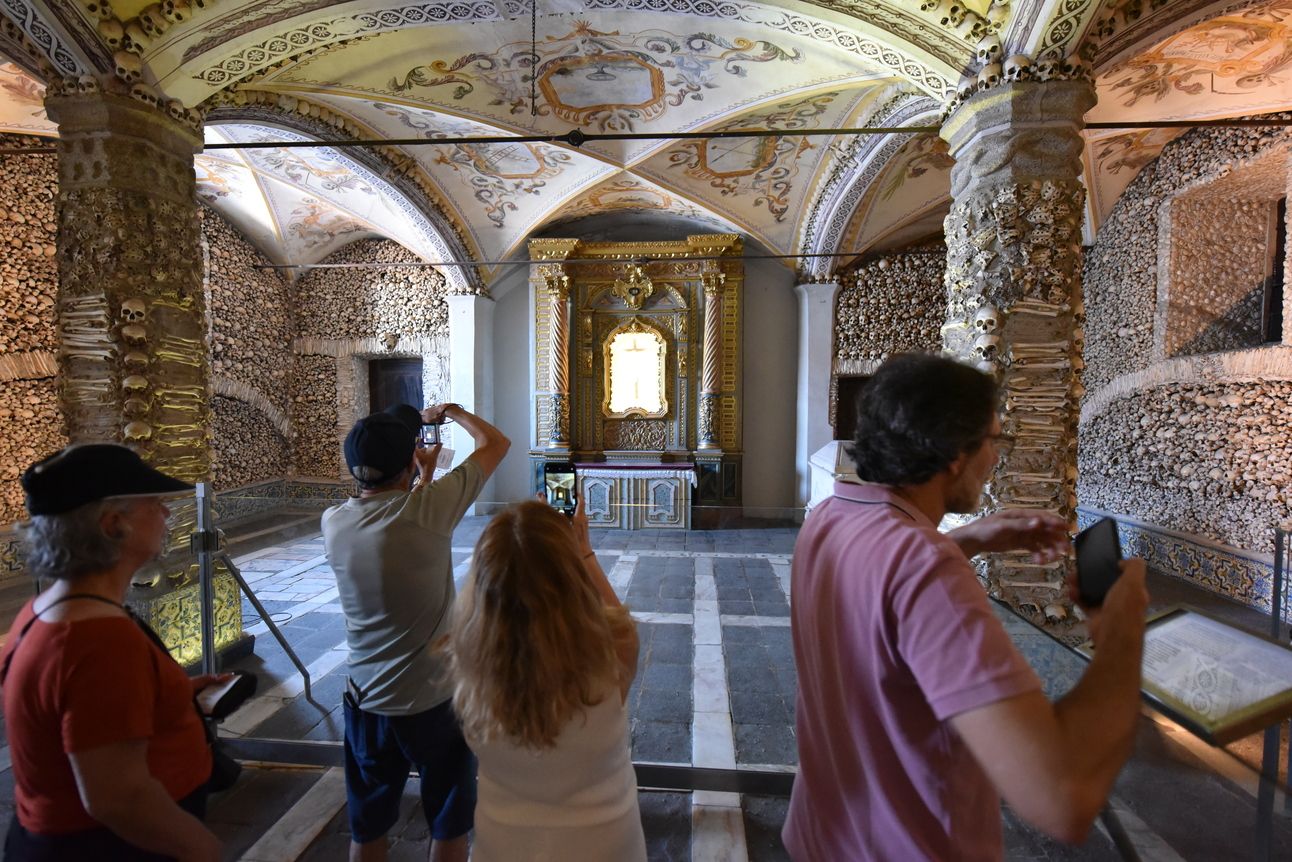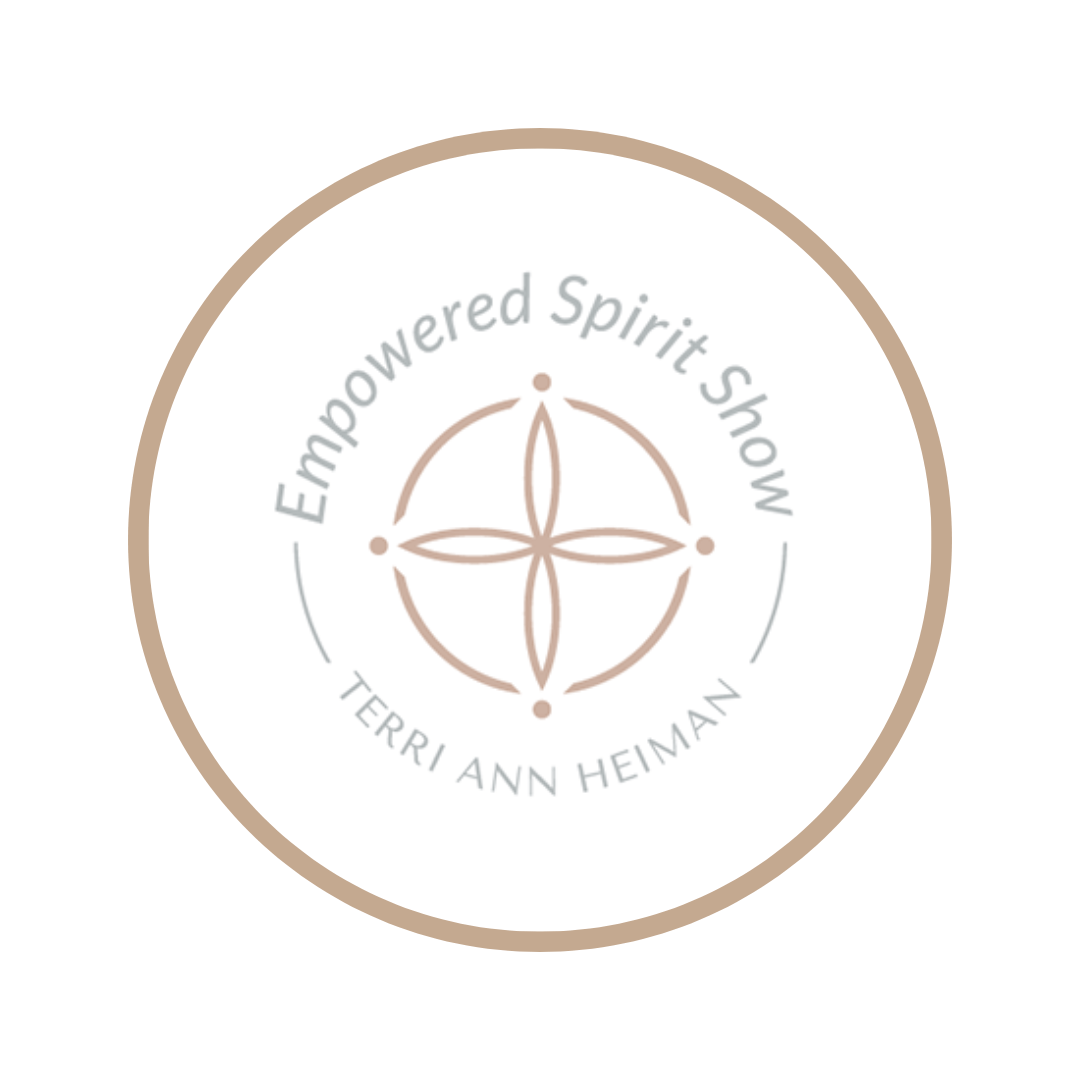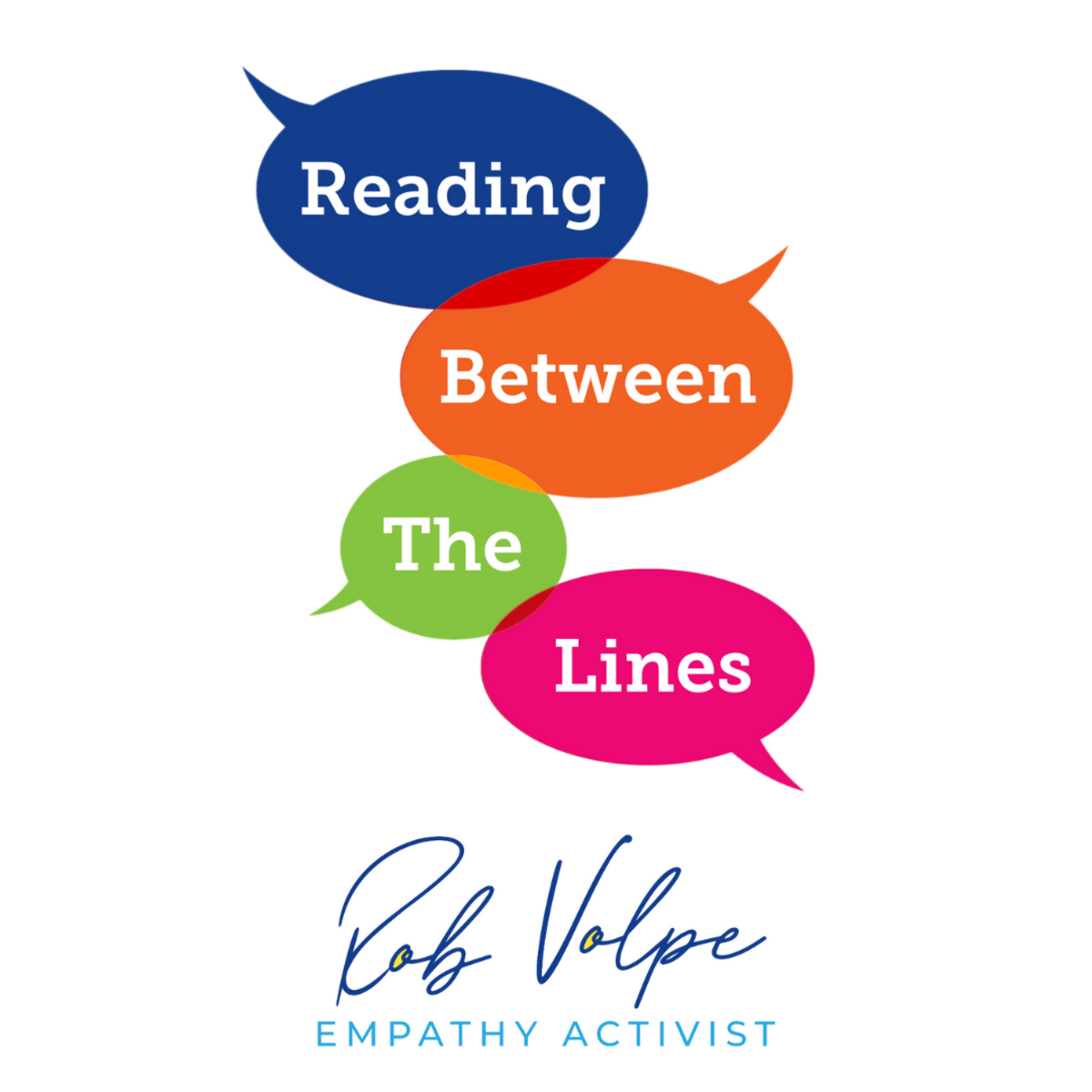Happy Saturday!
I hope this finds you well.
My original intention for this edition was to write about being on vacation and all the different ways empathy does and does not show up. Given requests from members of this community to discuss current events in Israel and Gaza, I thought it’d be more useful for everyone to discuss empathy in times of war and terrorism.
First, a welcome to all the new members of the community and a quick reminder of what you can expect from me in each edition of this newsletter …
I put my thinking here in the newsletter. Links are for diving deeper if you wish.
I strive to always deliver ‘news you can use’
I also share insights into human behavior and subjects I’m thinking about - after all, empathy is about understanding another person’s perspective
I include “slice of life” moments as people tell me they enjoy those.
The Q&A feature is based on questions that actually come up in conversation - please send me yours!
I’d like to hear your thoughts- on the newsletter itself, on empathy in action, or anything at all really. You can ‘reply’ to this email or reach out directly to: [email protected]
How to Use Empathy in Times of Terror
I remember I was about 12 years old, riding my bike through my neighborhood on a sunny, warm afternoon. I was heading home and about to pass a house that had a group of teenagers gathered in front of it. I don’t remember who was there except I recall at least one familiar face, a girl who lived on my street. I rode past on my 10-speed and looked over at the group. I might have waved or acknowledged the girl I knew while some of the assembled looked back at me. Suddenly, as I was passing the house, I heard a girl shout out “Ride away Rob, he’s going to kill you!” Looking back, I saw one of the teen boys coming at me in a dead sprint.
I didn’t need to be told twice. Heart pounding, afraid he was going to catch me, I shifted gears and pounded on the pedals, picking up so much speed that I had trouble staying upright as I rounded the corner onto my street. As I was making that turn, I took a moment to glance over my shoulder, half expecting to see a crazed teenage boy chasing after me. He wasn’t there. But that didn’t mean he had given up pursuit.
Afraid he was going to short cut through the back yard and jump me in my driveway, I kept up the pace, sped into my garage and darted into the relative safety of home.
In that moment of fear for my personal safety, there was no way I was going to stop and have empathy with that boy that came after me or the girl that ‘warned’ me. If its the one I think it was, I don’t recall speaking to her again for months.
Today, I can look back on the incident and recognize that they were being jerks and probably thought it would be fun to pick on someone who was different - being younger and the “odd man out” in a community where everyone grew up together, I was the easy target.
Experiences like that while growing up, plus my own natural inclination to be compassionate, led me to championing the underdog and also connect more empathetically with victims. Living in New York City during 9/11 and witnessing the collapse of the North Tower only reinforced that.
Now, with the October 7 attacks on Israel and the retaliation on Gaza, I’ve been asked about how empathy shows up and is supposed to be used in these moments. Who do we have empathy with? Is it ok to not have empathy? And what do we do with that empathy or lack thereof?
In the case of my childhood experience, there was a victim and a perpetrator. The same is true here although governments, political movements, religion and terrorist organizations are also involved. That complicates things as we may have empathy toward the individual but not the state, or empathy with the victim but not their political view. And voicing empathetic support or compassion for a human’s suffering can easily be conflated with supporting their views which may be counter to your own or your community. It get’s complicated really quickly.
I find simplicity can help lead to clarity. To that end, let’s start with reaffirming our knowledge about the fundamentals of empathy…
First, empathy is seeing another person’s point of view or feeling what they are feeling.
It’s understanding where they are coming from on a cognitive or emotional level. And so there are two types of empathy - cognitive and emotional empathy. We don’t use them interchangeably. It can be contingent on the situation or person we are trying to understand as well as our own personal make-up. Not everyone accesses emotional empathy as easily as others, or knows what to do with it if they have.
Second, there is a difference between sympathy - feeling ‘for’ someone - and empathy - feeling ‘with’ someone.
Sometimes sympathy is easier to access and all we can access, but understand which one you are experiencing. If you want to get beyond sympathy, be curious to learn more about the other person or people so you understand or feel what they are feeling or experiencing.
Next, a reminder that just because you have empathy with someone, it doesn’t mean you agree with them.
This is a common misconception with empathy - that seeing someone else’s point of view means you agree with them. No, it just means you can see where they are coming from.
It’s the understanding of someone else that is what makes empathy so powerful. I once had empathy described as “that little person inside my head representing the other person and I’m able to ask them what they think or how they might respond to a situation.” Imagine being able to tap into how someone might be thinking or feeling in order to decide what you might do next. This could be about a choice you are making in what to say or an action to take.
The gap between stimulus and response is also important to understand. Those two things don’t fully meet. There is actually a space. It’s in that space that we have a chance to take a curious breath and formulate how we might respond rather than merely react. We are making a choice to respond rather than reacting impulsively. This self-awareness to choose is important to utilize if we hope to move beyond our current reactionary status quo.
Finally, keep in mind that empathy is the ability that empowers many of the skills and actions we use in our day to day life. Having empathy isn’t the end result, it’s just the beginning that informs how we might respond through communication, collaboration, persuasion, compassion, compromise, problem-solving, ideation, trust, forgiveness and more.
Understanding all of this, let’s apply it to the current events in Israel and Gaza…
As I said earlier, there are victims and perpetrators. The first group we immediately had empathy with are the civilian victims of the October 7 attack. I know I have imagined what it must have been like to be at the music festival and had gunfire pierce the joyous event in those early morning hours, or to be driving on the street starting daily errands and being faced with gunmen. And to be shocked with the sudden news of a loved one’s murder or be left with the haunting question of why I hadn’t heard from my loved one.
That empathy can lead to compassion and a desire to take action. It can also fuel anger and a craving for retaliation. It’s possible to feel both, nothing is in isolation, and impulse can prompt us to react one way over the other. This is another moment when taking a breath to create space to contemplate and consider reactions and consequences can be useful in reaching a more positive outcome. It is a choice that we can make.
It’s also possible that we feel all this empathy and it fuels a desire for a reaction but we don’t know what to do or how to respond.
That paralysis is an “action gap” which my friend Jen Marr explores with her company, Inspiring Comfort. She’s found that we often see that people are in need of comfort but we don’t know what to do. As a result, we either do nothing or try to do something well meaning but not exactly what the other person needs. Often what others need is the chance to share how they are feeling and to know they aren’t alone. A simple “how are you doing today?” or “I can imagine this is difficult for you, how can I support you?” can do a lot to support others.
As we build empathy with the victims and consider the situation, we then start to search for answers - the reasons ‘why’ this happened. Not ‘how’ it happened, that’s been covered in plenty of detail, but what motivated it. If you happen to be an empath or highly sensitive person, you might be looking for the emotions behind it. This is where it’s important to use boundaries to protect yourself from being overloaded. Do you need to feel the feelings of hatred when you can see the evil acts that it festered? As you consider the perpetrators, among them are the individuals as well as the organization. The cognitive understanding I have that Hamas has stated they want to eradicate Jews out of existence provides me with the basic information I need to process what’s happening with this organization and is motivating the acts of the individuals. I don’t need or want to connect emotionally with that as I don’t believe it will do me any good. That’s a boundary that I’m setting.
And once again, just because you understand where Hamas might be coming from does not mean that you agree or condone their behavior. It just means that you acknowledge that they hold these beliefs which are motivating their behavior. If you were in a position to be working on finding a resolution to the situation, you can use the understanding to inform how you communicate, ideas that might reduce the tension or other paths toward a peaceful solution.
In the days following the attack, as the Israel Defense Force began to retaliate and bomb Gaza, we may be moved to have empathy with the Palestinian civilians who are victims of this siege. Similar to the victims of the October 7 attack, you can imagine the fear and uncertainty that a person may have, regardless of their religious beliefs, race or ethnicity, when their home and their life is under attack. Again, compassion and/or a desire for revenge may be coming up. The amount you feel of one or the other (or even another feeling) may be informed by your biases, stereotypes and past experiences that you hold. If you are Muslim, you may be biased to feel more for the Palestinians than the Israelis due to your past experiences and knowledge you’ve been exposed to. If you are Jewish, the opposite may be true. Or you may recognize and dismantle your judgment and have empathy with the Palestinian civilians because, just like you, they are human.
I was recently asked if empathy for Palestinians should extend to all Palestinians or just those who do not support Hamas.
Again, having empathy does not mean that you agree with their beliefs, only that you feel connected to what they are currently going through. You may become curious to learn and understand more, but the focus in this moment is the experience of being attacked or having to flee from their homes for safety. This is upsetting the base of Maslow’s Hierarchy of Needs - to be safe and secure.
While the political situation in the Middle East is complex, the human situation is not. People are suffering. Empathy is the aptitude that fuels our compassion, a need for revenge, as well as all the other skills we will use in this and every day. It is possible to have empathy for the civilians that are suffering but not support the government or terrorists carrying out the actions. Empathy is about knowledge and connection. Use that to inform the choices on what you support or not.
Throughout my life, I’ve never been able to truly comprehend what would make one group hate another to the point of violence. Yes, I was angry at my classmates that bullied me and at the community that fostered that. I never acted out in violence against them however that was my choice. In the case of the Middle East, I’ve tried to have cognitive empathy and can see where certain teachings or belief systems would lead someone to embrace that ideology but how does that lead to acting out in such a violent way. We’re all human. Doesn’t that count for something? Underneath it all, we are made of the same series of cells and bones and muscle.
This point was made clear to me during my vacation in the days after October 7. In the town of Evora we came across, and I developed a fascination with, the Capela dos Ossos, aka Bone Chapels. Built in the 1700s at the suggestion of the Franciscan monks to help alleviate overcrowding at the local cemeteries, centuries-old buried corpses were retrieved and used to build chapels using the bones. The monks had a second motive beyond preserving valuable real estate. It’s reported that they were disturbed by the materialism of the time and how people were focused on themselves. The chapels would provide a place for people to sit and reflect on this end state of our existence by looking at the bones of thousands that had come before them.
It’s creepy and eerie. Once inside, I couldn’t help but reflect how every one of the skulls on display was a person who lived a life and yet, at the end of the day, is no different than anyone else. Every one of us is the same from this perspective. Why shouldn’t we treat each other better now when it counts?
Having empathy for one another is the way to start.

Inside Capela dos Ossos in Evora - the largest of 6 Bone Chapels in Portugal. Visitors are meant to reflect on what happens at the end of life and how we are all the same.
How have you been doing with the situation in Israel and Gaza? How has empathy been showing up for you? I’d appreciate hearing your thoughts.
The Podcast with a Mindful Start

Terri Ann Heiman begins each episode of her podcast The Empowered Spirit with a mindfulness exercise. That was a first for me, at least on a podcast, but I was grateful for it as we were recording in the middle of what was a busy day for me.
I love that she starts her show this way because active listening requires the ability to stay present in the current moment. There's a lot we can learn by simply slowing down, observing our surroundings, tuning into non-verbal cues, and allowing ourselves the space to pause, take a breath. and reflect on what the other person is saying before responding.
And it turned out to be a great conversation.
Give it a listen:
A Reminder to Look for the Good
During difficult times like these, with pain and suffering on display and our emotions running high, it's natural to feel a sense of helplessness. Recognizing that we can't mend everything, the weight of despair and sorrow can become quite daunting.
Consider this as a gentle nudge to seek out positivity in every day. There's a saying that I believe holds truth: “you find what you are looking for”. Prioritizing your mental health and overall well-being is of utmost importance. Being intentional about finding moments of beauty, goodness, or gratitude each day can serve as an anchor while you navigate the path of empathy for others.
I’ll leave you with these final thoughts today …

Sunrise over the Douro River Valley in Portugal
Some things, like the sunrise, will continue and endure long past our time on Earth.

New Friends: Marie and I
I met Marie, an expat living in Lagos, Portugal, thru mutual friends out for drinks on a Friday night. We had a wonderful conversation about empathy and her husband Mark joined the conversation as well. The son of a vicar, Mark has long understood the importance of seeing the perspective of others thanks to his father’s teaching”
Which just goes to show there are good empathetic people everywhere you may travel.

Next week I’ll be taking part in a free livestream event hosted by The Art and Science of Joy. We're going to chat about how emotional wellbeing and joy go hand in hand, and share our favorite tips on how to live a happier, more joyful life by boosting your emotional wellbeing. I hope you’ll tune in and take part.
I hope you liked this edition.
Please pass it along to someone you know that might also enjoy it. Either forward this email or invite them to subscribe at the click of the button below.
Reading Between the Lines delivers of-the-moment insights into human behavior and empathy, drawn from the world of marketing research and an empathy activist; expect practical tips on using the skill of empathy in everyday life and exclusive updates to keep my community close. All on a biweekly basis.

